
Taxi Driver, hands down, is easily one of the greatest American films ever made. Period. With Scorsese’s sharp direction, Paul Schrader’s compelling script, and Robert De Niro’s chilling performance, what they brought to the world is perhaps the greatest psychological drama ever put on film.
To further gush on about its greatness would be redundant, but what about other films that have similar themes? For those looking for another cinematic experience like Taxi Driver, here are 10 films that, in some way or another, might make for an interesting double feature with Taxi Driver.
NOTE: To prevent redundancy, this list will not include films by Paul Schrader or others by Martin Scorsese. Additionally, it is well known that The Searchers (1956) is a direct influence on Taxi Driver’s script and themes. For this reason, The Searchers will not be discussed either.
1. Falling Down (1993, dir. Joel Schumacher)
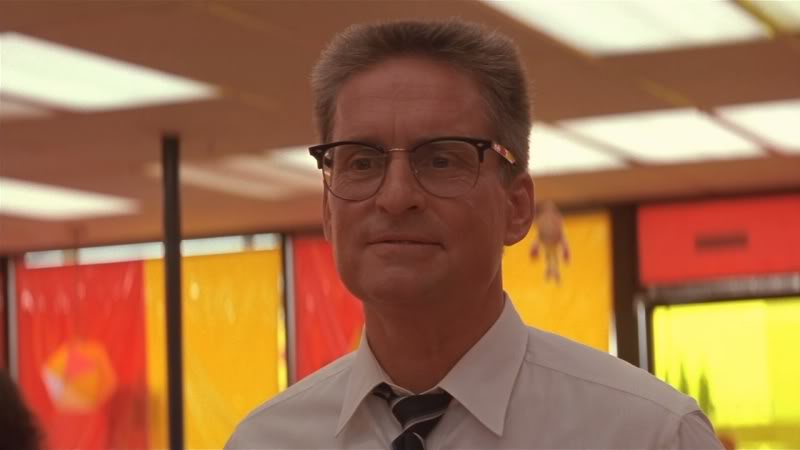
Gridlocked in the middle of L.A. traffic, seemingly suffocated by various every-day irritants, a middle-aged defense contractor (credited as D-FENS) has had enough. He abandons his car and walks away – when a neighboring driver asks him where he’s going, he modestly responds “Going home”.
Making the arduous trek through Los Angeles on foot, D-FENS must confront the bleak reality that surrounds him – poverty, urban decay, gang violence, and so on. If that wasn’t enough, he is also faced with the reality of his failed marriage, which has resulted in a restraining order against him.
Though not a perfect film front to back, Falling Down is nonetheless a poignant gem and is perhaps the Taxi Driver of the 1990s. If Travis were a middle-class desk jockey, he would probably be something like D-FENS.
Both are men who are alienated and subsequently enraged by the decaying world around them and their inability to control it, their ultimate fates defined by violent outbursts (albeit, Taxi Driver builds up to one climactic outburst, while Falling Down is a series of them). Their rage is only worsened by their failed relationships with women, as well as a mutual cluelessness between them – Travis, so socially removed, takes Betsy to a porn film.
Though the reasons for D-FENS’s divorce are left ambiguous, he is still coming home to his wife and daughter regardless, and not even a restraining order can open his eyes to his unwanted presence.
2. First Blood (1982, dir. Ted Kotcheff)
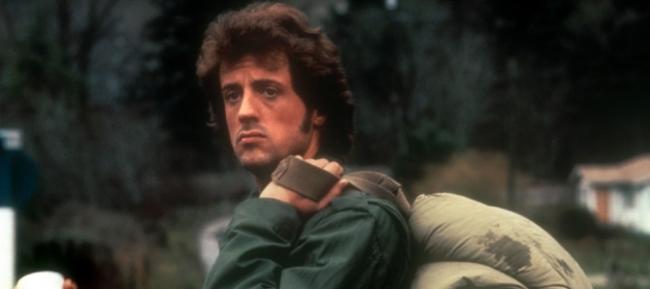
Here it all started, the beginning of one of action cinema’s most iconic franchises. John Rambo is a Vietnam Veteran drifting from town to town. When the film begins, he has discovered that the last of his comrades has passed on.
With no connections, Rambo continues his trek, which takes him to a small Oregon town where he has a bad run-in with the local sheriff. Abused by the police, Rambo is pushed to his absolute limit and declares war on the town, wreaking destructive havoc. When confronted with his actions, Rambo only responds “they drew first blood.”
Perhaps the parallels of Taxi Driver and First Blood aren’t immediately clear, and the two aren’t front-to-back companions, they are present. Obviously, both protagonists have not only served in Vietnam, but are also scarred from the experience. Granted, Rambo’s experience is more explicitly detailed than that of Travis’s.
Though Rambo doesn’t possess the fixation on another person that drives Travis, both are still subjected to rejection that drives them both to think that explosive violence is the only way. First Blood would mark the start of a franchise that capitalized on over-the-top action, which unfortunately overshadows the first film, which is a stunning portrait of PTSD and alienation.
3. I Stand Alone (1998, dir. Gaspar Noe)
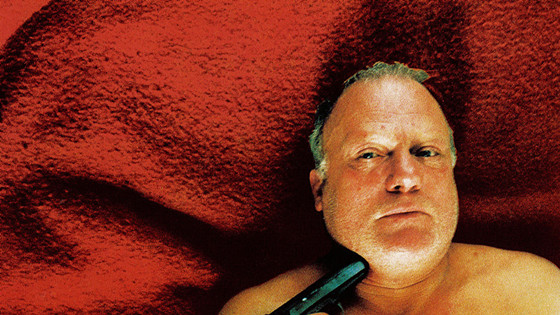
He is only known as the Butcher, and he is perhaps the textbook definition of a “ticking time-bomb”. The camera rarely looks away from him, and his face shows a man who is about to explode. The Butcher’s narration only makes his gravid rage more palpable, as he unleashes torrents of hatred and contempt about seemingly everybody around him.
The only person he has any love for is his preteen daughter, and even that won’t redeem him, considering his incestuous feelings for her. This is I Stand Alone, Gaspar Noe’s debut feature, and is perhaps his most transgressive and extreme work yet, as the viewer is forced to endure this character and his hatred for 93 minutes. Not a single punch is pulled.
Some have argued that I Stand Alone is a much more honest version of Taxi Driver. The latter may explore a time bomb of a protagonist, but I Stand Alone takes a gutsy plunge and wallows in the character’s mind.
Both are men who are utterly alone in their respective worlds, and cannot blame anybody but themselves for their loneliness, though the tone is a little lighter with Taxi Driver; Travis is just a man who is clueless about the society that surrounds him. The Butcher, on the other hand, is a man who has not only burned every bridge in his life, but continues to do so.
Though I Stand Alone reaches points where the Butcher becomes unlikeable to the point of the viewer’s disinterest, I Stand Alone still proves to be an all-too compelling dive into an alienated man’s hatred for the world around him, and its power is only further fueled by Philippe Nahon’s chilling portrayal of the Butcher, one of the most underrated performances in film history.
4. Memento (2000, dir. Christopher Nolan)
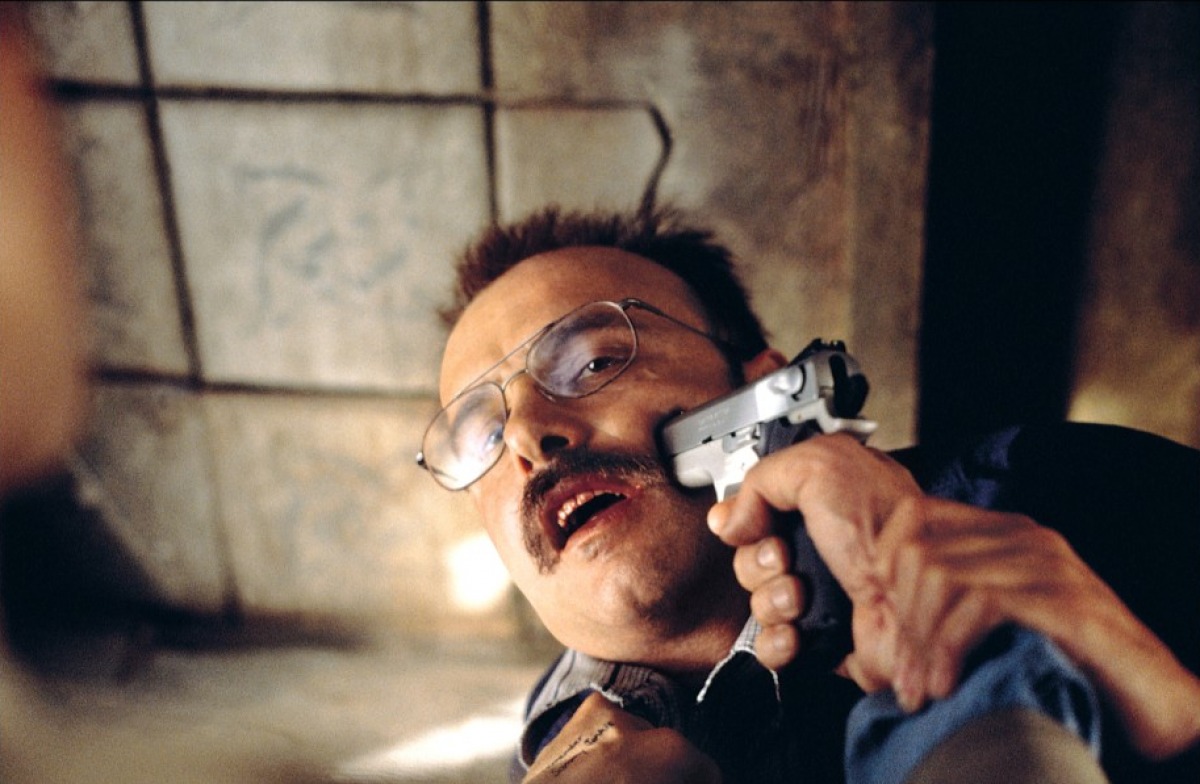
A Polaroid exhibits a grisly gun murder. As the image holds, the Polaroid reverts back to its white slate beginning. The scene, as it turns out, is playing in reverse, showing the murder right before it was photographed. The man with the gun and camera is Leonard, who believes he has killed the man who raped and murdered his wife, who is known as John G. Like its opening scene, the narrative rolls in reverse.
Leonard is a man suffering from short term memory loss, and must use tattoos across his body and labelled Polaroid photographs (his camera is always by his side) to remind him of what he now lives for – vengeance.
Before his mainstream success with his Batman trilogy, Christopher Nolan made waves in the film world with his sophomore effort Memento, a time and mind-bending film that lives on as a cult smash.
To compare it side-by-side with Taxi Driver is, in all fairness, somewhat of a stretch. There is the obvious mutual theme of obsession going on (though handled very differently, but an interesting parallel is the tragedy of their actions, something that isn’t discussed too much with Memento.
The tragedy in Taxi Driver is quite obvious with just how off-the-deep-end Travis has descended, but in Memento, it’s a little more subtle. Without spoiling too much, whether he ever catches John G or not (or if he already has), his condition will force him to continue the same search over and over until who knows what will happen to him.
5. Monster (2003, dir. Patty Jenkins)
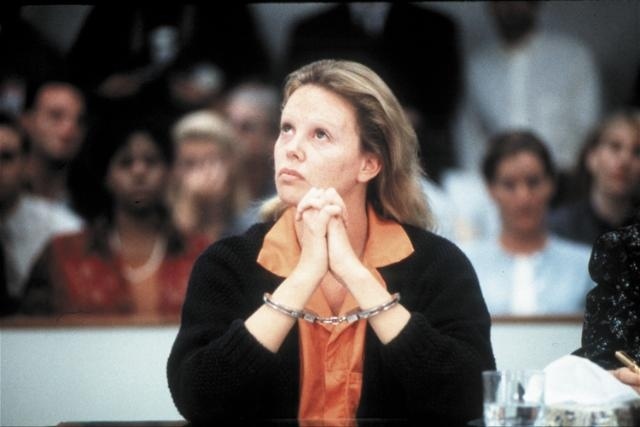
Aileen Wuornos (Charlize Theron), a drifting prostitute down on her luck, is on the verge of suicide when she decides to spend the last of her money at a bar. It is there that she meets young and naive Selby (Christina Ricci). With Aileen ready to abandon prostitution and strive for better things, the two hit the road together, wanting to make the most out of their lives together.
Money proves short, though, and Aileen returns to prostituting to make ends meet. After being raped by one of her customers, it is here that Aileen begins her string of murders that would lead to her highly publicized execution in 2002.
Though creative liberties were taken in spots, Patty Jenkins still delivered one of the most piercing serial killer biopics in cinema yet, and its power is all on account of Charlize Theron’s portrayal of Wuornos. A lesser performance would have resulted in a despicable character. In Monster, while there is no apologizing for Wuornos’s actions, there is sympathy that is prominent.
Like Travis Bickle, Aileen Wuornos is someone just wants something better in their life, but a damaged soul and skewed worldview render her unable to understand how to achieve the sort of happiness she so deeply desires. Thus, she falls into a rabbit hole that she digs deeper and deeper into, as if she asked herself “what’s the point?”, like Travis’s enraged massacre.